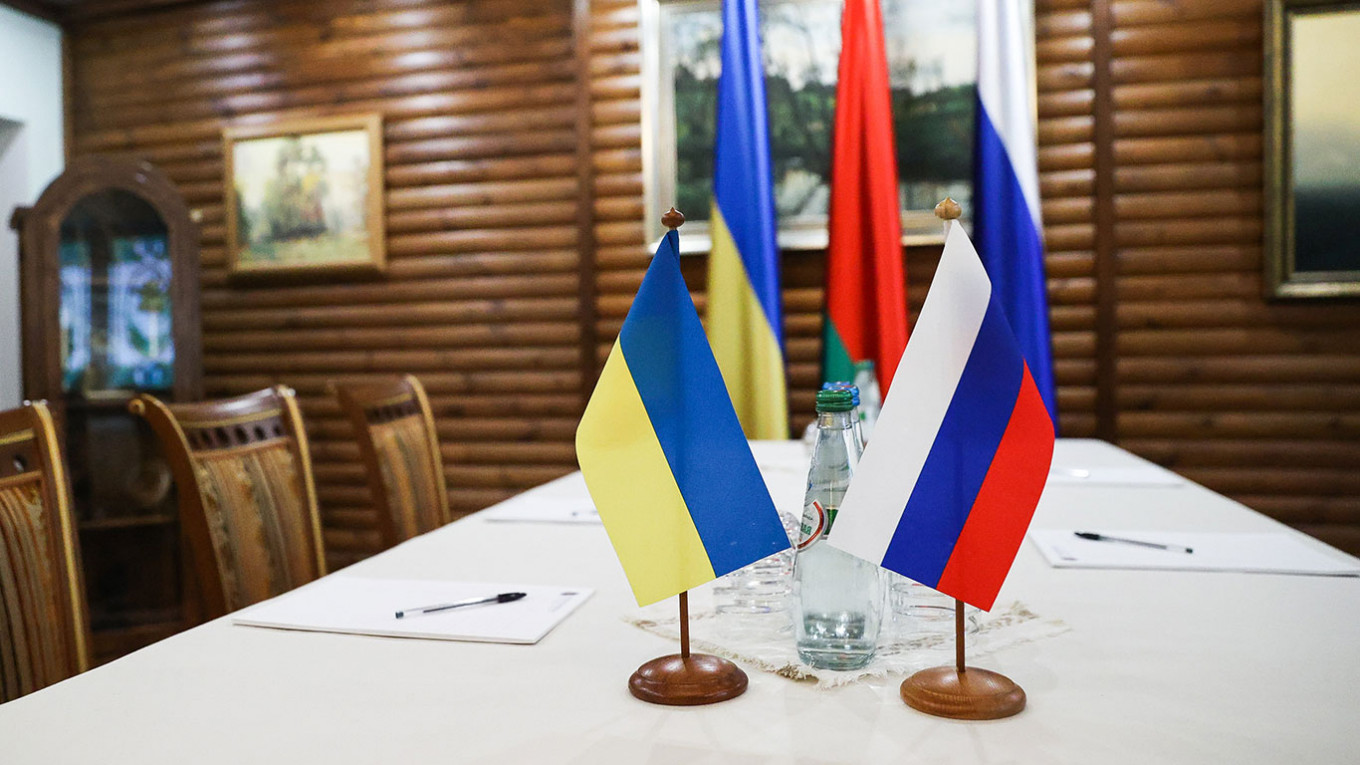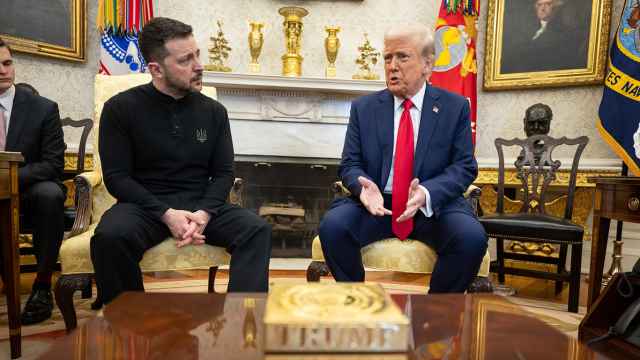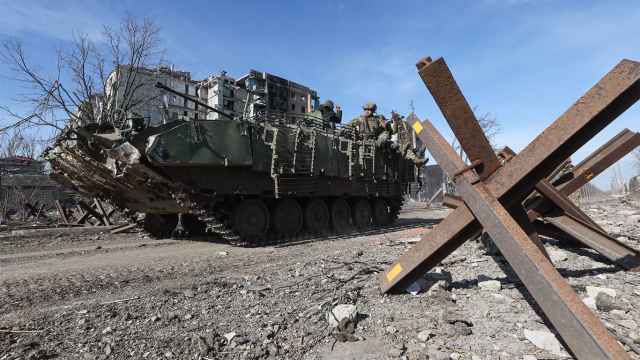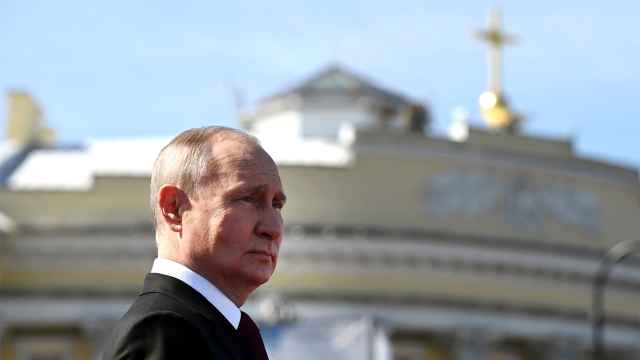Talks aimed at ending hostilities in Russia’s nearly three-month attack on Ukraine have come to a standstill because of a “lack of willingness” on Kyiv’s part, the Kremlin said Wednesday.
Russian and Ukrainian negotiators have held several rounds of peace talks since the start of the invasion in February. But the talks have lost momentum as Kyiv — emboldened by battlefield successes and angry over apparent atrocities by Russian forces — has become less interested in making concessions to Moscow.
“Talks are indeed not moving forward and we note the complete lack of will of Ukrainian negotiators to continue this process,” Kremlin spokesman Dmitry Peskov told reporters, according to the state-run RIA Novosti news agency.
On Tuesday, Kyiv's lead negotiator Mykhaylo Podolyak said that talks with Moscow were "on hold."
Russia’s chief negotiator Vladimir Medinsky claimed this week that he was yet to receive a response to a draft peace agreement sent to Ukraine on April 15.
Top Ukrainian negotiator Rustem Umerov said Tuesday that Russia was operating with “fakes and lies.”
A key sticking point in the talks is whether Russia will hold onto territories it has seized in the war, or retreat to its internationally recognized borders.
“If Russia wants to get out, they can get out to their borders even today. But they are not doing it,” Umerov told The New York Times.
“The real problem is that Russia does not show the desire to participate in real and substantive negotiations,” Ukrainian Foreign Minister Dmytro Kuleba told German news outlet Die Welt last week.
A series of counter-offensives around the northeastern Ukrainian city of Kharkiv in recent days have driven Russian troops back to within a few kilometers of the Russian border, giving Kyiv’s forces a morale boost.
Kyiv is also bolstered by a continual flow of Western weapons, with analysts predicting Ukraine is better placed to fight a long war of attrition.
“Now that we feel more confident in the fight, our position in the negotiations is also getting tougher,” Kuleba told Die Welt.
AFP contributed reporting.
A Message from The Moscow Times:
Dear readers,
We are facing unprecedented challenges. Russia's Prosecutor General's Office has designated The Moscow Times as an "undesirable" organization, criminalizing our work and putting our staff at risk of prosecution. This follows our earlier unjust labeling as a "foreign agent."
These actions are direct attempts to silence independent journalism in Russia. The authorities claim our work "discredits the decisions of the Russian leadership." We see things differently: we strive to provide accurate, unbiased reporting on Russia.
We, the journalists of The Moscow Times, refuse to be silenced. But to continue our work, we need your help.
Your support, no matter how small, makes a world of difference. If you can, please support us monthly starting from just $2. It's quick to set up, and every contribution makes a significant impact.
By supporting The Moscow Times, you're defending open, independent journalism in the face of repression. Thank you for standing with us.
Remind me later.






